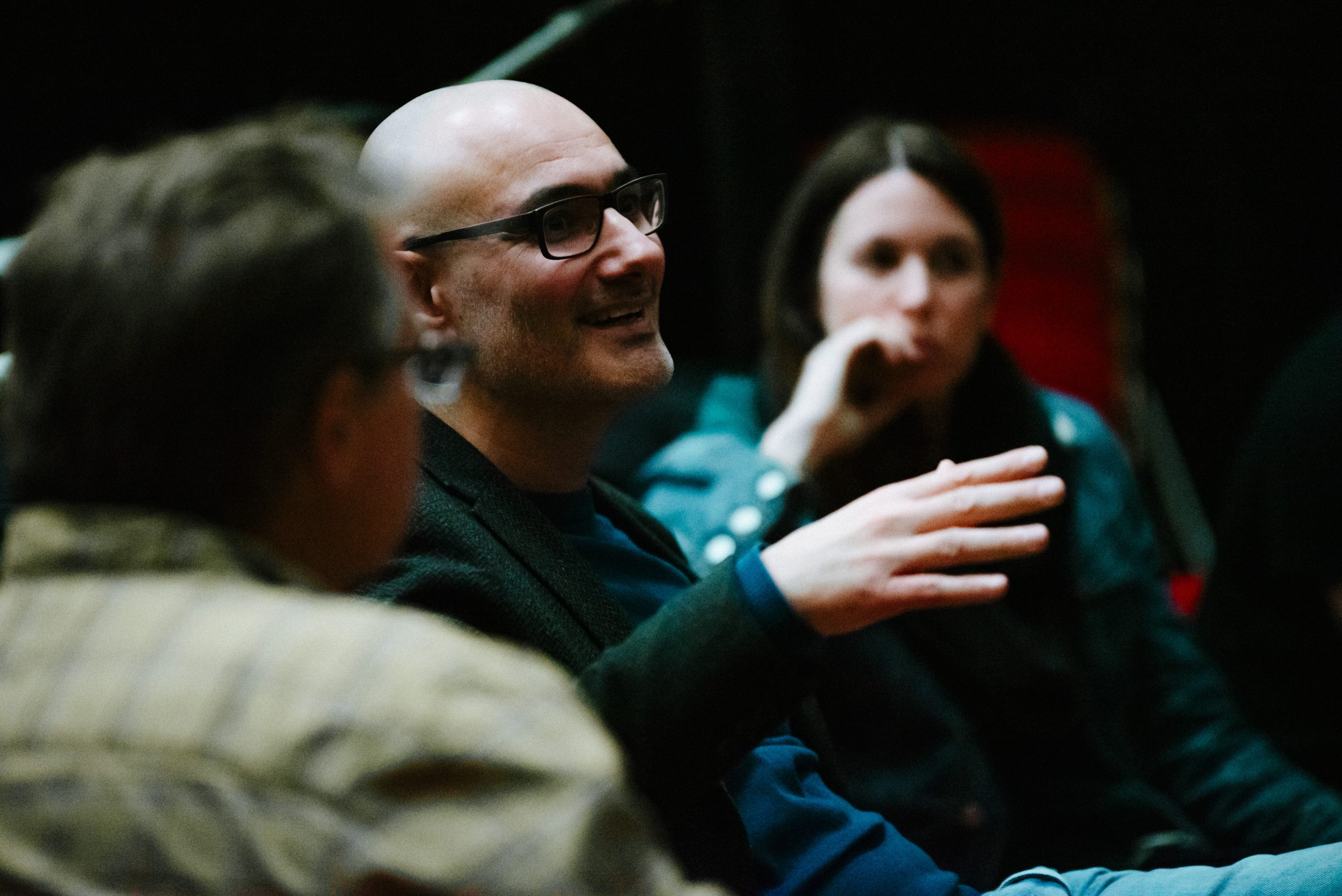Review of Health and Wellbeing in Professional Wrestling Roundtable

After a year of gathering data, we celebrated the end of the Health and Wellbeing in Professional Event with a roundtable event bringing together key stakeholders from the wrestling community and academia. We discussed the findings of the project and began to sketch out future directions. We were all so encouraged by the conversation and look forward to developing new collaborations to help wrestling to be safer and more inclusive.
Reflecting on the event, Joe Kennard wrote the following report. Joe completed a BA Drama at De Montfort University. He is currently studying for an MA at the world-leading International Centre for Sports History and Culture. An actor and performer, he has been the play-by-play commentator for Wrestling Resurgence since 2018.
On Saturday 22nd November I attended the Health and Wellbeing in Professional Wrestling roundtable at Attenborough Arts centre in Leicester. What a fascinating event it was! Immediately I was struck by the healthy ratio of academics, wrestlers and promoters in attendance. It was encouraging to see so many engaging with this project, which has the very real prospect of making some serious real-world impact in the coming years.
One main talking point was concussion. The team uncovered many shocking statistics and stories. Anyone who knows wrestling will probably be aware of concussion and have a basic knowledge of its impact, but it is an incredibly complex issue and naturally there are no straightforward answers. My main takeaway was that far too many concussions go untreated for various reasons. Unfortunately, it means that no easy answers are available to rectify the issue. However, I found it incredibly encouraging how candid and self-aware the wrestlers were that afternoon and perhaps this was the most encouraging part of the talk in response to concussion.
A discussion on the welfare of professional wrestlers would not be incomplete without mentioning the bravery of many professional wrestlers, the vast majority women, speaking out in the early part of 2020. Again, I found that the wrestlers in attendance spoke with honesty, regret and passion in regard to this subject matter. Perhaps the most shocking intervention was the first hand account of a member of the audience’s own sexual harassment, assault and bullying in training. This led to a conversation surrounding wrestling schools in general and the abuse that goes on behind closed doors. It was uncovered in this discussion that so many schools go unregulated and indeed it led me to think about my own experiences when I trained for a couple of months.
The methods used are formed by the trainer and put into practice by the trainee and for whatever reason you have an implicit trust of your teacher, even though they have no education or undertaken any course. A quick google search of ‘how to become a gymnastics coach’ will lead you to any number of websites with a variety of courses that must be completed to become a coach. This is where the research by the academic team really comes into its own because it becomes obvious that wrestling would benefit from this level of professionalism. The difficulty: who will regulate this? The obvious answer is a governing body of professional wrestling, and this is where the discussion led to next. Interestingly though this seemed to be the thing that led to the most scepticism of all. Many within the industry at the talk seemed to think of this as a pipedream and even on the academic side of the discussion there was an acceptance that this was a long way off. What became apparent was many within the industry would see any attempt of a sporting body or unionisation as a “work”, a way of gaining power and threatening the existence of various promotions. It was fascinating to hear the variety of opinions on the matter and the suggestions being made. One such suggestion was that it needed to be someone from the outside of the industry without any hint of a personal agenda but unfortunately this does seem a way off.
This event may have been the culmination of the research into the Health and Wellbeing in Professional Wrestling, but it signified the start of its real-world impact. With various figures from the professional wrestling world and an incredible academic team they have been able to identify key areas for change. There are many I haven’t even mentioned in this blog post such as mental health, freelance contracts, and injury prevention. But as I said in the beginning, I was encouraged by the amount of people in the industry who attended the event, whose influence could well be pivotal to these findings being implemented into a real-world situation. I was able to leave the seminar with hope for the future of wrestling, that things would improve and perhaps one day professional wrestling might provide an equal setting for all to follow their passion.